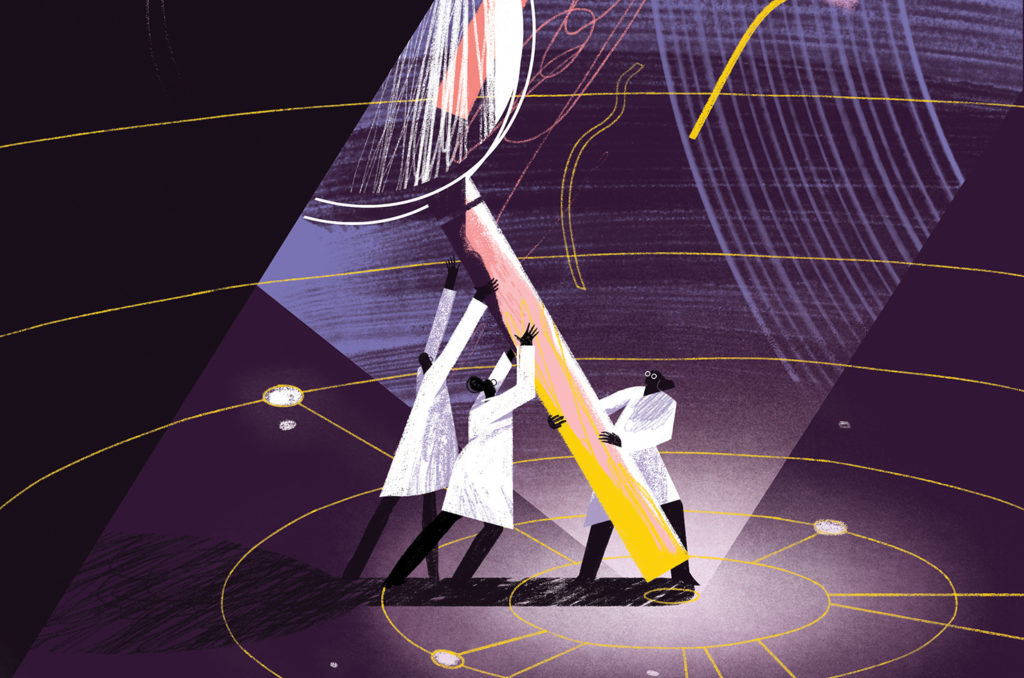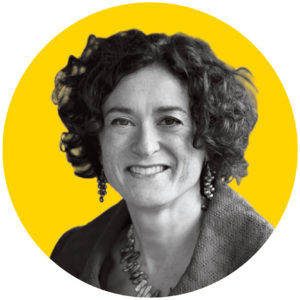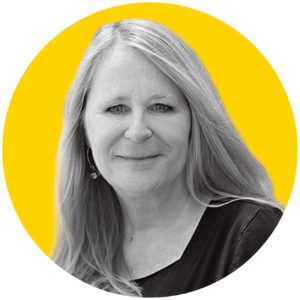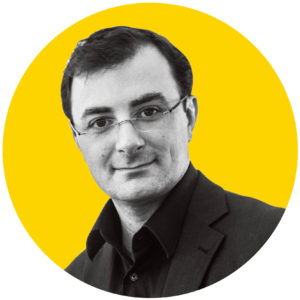
Last October, three scheduled presentations by scientists from the U.S. Environmental Protection Agency (EPA) — including a keynote — were pulled by the EPA from a workshop organized by the Narragansett Bay Estuary Program in Providence, Rhode Island. Although the EPA didn’t give a reason why the scientists would not be speaking, critics of the action pointed out that the scientists had contributed to a report that included climate change as a future threat to the local watershed. “This looks,” the estuary program’s science advisory committee chair, John King, told the Cape Cod Times, “like the opening volley of the war on science.”
The next month, researchers from the U.S. Forest Service were denied permission to attend the Association for Fire Ecology’s (AFE) International Fire Congress in Orlando, including a scientist scheduled to deliver a presentation on the role of climate change in creating severe fire weather conditions. The event organizer had expected 44 scientists from the Rocky Mountain Research Station to be at the congress, instead of the six or seven permitted to attend, Timothy Ingalsbee, AFE’s director of development told The Missoulian, in Missoula, Montana. The scientists’ supervisor rejected the idea that politics played a part in their absence.
Cuts in conference attendance by U.S. government–funded scientists made headlines yet again in December, when it was reported that there had been a 60-percent drop in participation by scientists from the United States Geological Survey (USGS), at the American Geophysical Union’s (AGU) annual meeting that month in New Orleans. In addition to a decline in the number of USGS attendees — from 442 in 2016 to 169 in 2017 — 31 abstracts were withdrawn from the meeting. The Department of the Interior, which oversees the USGS, cited a budget cap for expenses related to meetings as the reason for the reduced numbers.
The absence of USGS scientists didn’t affect the overall attendance at the meeting, which drew 24,000 attendees from around the world to New Orleans, said Christine McEntee, AGU’s executive director and CEO. Still, McEntee called the decline in USGS participation “alarming.”
“Scientists must be able to share their research to find new minds who can continue to advance those ideas,” McEntee said. “The attendees are working on a range of different aspects of earth and space science, and their work is globally collaborative. You can’t duplicate that if you’re not there.”
Coming at the end of a year of scientist-led protests and boycotts in the wake of federal travel policies for international visitors, we wondered: What does this mean for the future of international scientific meetings?
In January, at Convening Leaders 2018, PCMA and Convene invited three experts, including McEntee, to explore that and other questions. An edited and condensed version of the session, moderated by Editor in Chief Michelle Russell, follows.
Michelle Russell After AGU’s annual conference in New Orleans in December, it was reported that 60 percent fewer government scientists attended. Can you walk us through what has been happening?

Christine McEntee Since 2011, we’ve seen actually two drops in our meeting attendance. The first one occurred in 2013 after the reports of the General Services Administration (GSA) incident in Nevada — the Obama administration really cut back on travel. The second time was in 2016 and 2017, after the 2016 elections. So we’ve seen two drops in government-related scientists at two different points of time. In general, it has resulted in about a little less than a 50-percent drop across the board — some agencies have cut back more than others. What’s really interesting is that recently we’ve seen an uptick in scientists who work in the military coming to our meeting.
We think there are multiple things going on, but we really have to analyze it. We do know that there are other reports of other meetings this year where scientists were prevented from attending. We also know that even after 2012, the agencies had to get very creative and savvy about how to get approvals in the government agencies, because the scientific audience at our meeting was so large that it was above the total dollar threshold for each agency [for meeting travel].
We also have issues with the repeated government shutdowns and threats of government shutdowns right around December. As you know, this isn’t the first year that we’ve had the problem of being down to the wire for our meeting, so that causes some people not to get their approvals in time to be able to come.
I do think, though, that the current lack of emphasis on science across this new administration is affecting us more than in the past. We were able to see a quick rebound after 2012, 2013, and 2014 — we worked with the government agencies to be able to hold early registration for government attendees because we knew they had to [have time for] more steps in their approvals. But this feels like a shift, not just with federal government attendees, but it feels like a shift in terms of people from overseas feeling comfortable coming to the meeting, although our overall overseas attendance was on par with the last several years.
We did start hearing, anecdotally, reports of people whose visas didn’t get approved in time to travel overseas. We’ve heard reports of people being afraid to travel to the United States. Where we haven’t seen a shift yet is from academic institutions in the U.S. In our scientific community, we have quite a high percentage of individuals who are getting their graduate degrees in the U.S., but they’re here on visas to allow them to do education. And so they are foreign students in the United States pursuing their education.
So we don’t know yet what this shift will or will not be. The final thing I just want to emphasize is this: When you start talking about several hundred people, and between 200 and 400 hotel registrations, it starts to add up. Not just in hotel revenue, but it adds up in economic impact in a particular city because of all the food and beverage. But this is deeper, and I think this is true across the other scientific societies as well.
Scientists need to meet and discuss, to be able to share their latest findings to give us the kind of information we need to make good decisions. Specifically, in earth and space science, the meeting industry benefits from the extremely accurate weather forecasts and warnings about particular disasters, and [forecasts] about floods. This research enterprise is globally collaborative. About 35 percent of the research papers published today come from authors from more than one country.
It’s extremely important that we think about this strategically, and speaking for AGU, to allow people to convene and meet in ways that are welcoming, that are accessible, so that they can advance the science for all of us. So we’re taking a holistic, strategic look at this. It doesn’t mean we’re ignoring the revenue, but what’s more important to us is how we continue to be able to advance the science and we know scientists think ideas are sparked by the ability to interact with each other and debate problems and research findings.

Roberta Kravitz I will echo all that Christine said, we’re seeing these troubling things as well. Last summer, we held a retreat for the overall strategic planning for the society and something that kept coming up was the fact that this is such a hostile environment today for science.
I want to underscore how important the collaborative nature of science is. Magnetic resonance imaging literally [began] when they took the first image of a hermit crab in 1980. In 1981, they started my organization and it was still mostly an idea. The machine looked liked something the Marquis de Sade created, and only nine years later, it was in the hospital and they were scanning all of us.
It has such a huge impact on diagnostic imaging and they did that in nine years because they were international from the very beginning. Their primary purpose was to establish two journals to publish their work and to have an annual meeting where everybody from all of these countries around the world would come, submit their work, and share it. That [collaboration] was the only thing they all tell me that drove the technology so fast, because nine years is a blink of the eye with this type of technology.
With that said, it’s disheartening for our scientific community to have to deal in an era where they feel that seeking truth isn’t primary and that policy decisions are made based on only economics and not a balance of scientific truth and economics. This is a real crisis — I guess I could say it’s the beginning of a crisis — and those of us that run scientific organizations are going to start seeing more and more of a need for us to be creative in being able to address how we are going to keep the collaborative effort going. It will probably be through technology — maybe not always face to face.

Alessandro Cortese It’s difficult from my angle of viewing to comment on politics in the U.S. I can share the experience from a European perspective, because the situation in Europe over the last 10 to 15 years has not been very good in terms of research funding.
Science is not really defined by geographical boundaries and limits — it’s about networks. It’s about exchanging knowledge through the scientific method, how you communicate knowledge and how you make it available to others for the sake of progress. Our meetings are all about creating those conditions to allow the best possible exchange of knowledge and interaction and networking between people, who can learn from each other and then make that knowledge available for others.
The case of ESTRO is interesting because, despite the fact that in Europe we don’t have much funding right now for conducting research and for traveling to events, we have seen growth in the last six years of about 15 percent every year both in attendance and exhibitions support. All our growth is coming from Asia Pacific or North America — the European component is flat. There’s no growth there.
Ninety-seven percent of the members of the Canadian Society for Radiotherapy are also members of the European society. Why is that? I think the main [reason] is that we’ve embraced the idea that science is a global network. It is a global perspective and science will continue despite what- ever any government or any local political action can do or not do to scientific networks.
[What can happen is that networks can] shift to where conditions are more favorable for science to flourish. Brexit is a good example of what’s going on in Europe right now. The economic situation is not at all terrific right now. We’re seeing progressively a loss in competitiveness, and I believe that part of the reason is that scientific development and the transition from pure science to applied science to business has been cut.
Maybe one comment from my point of view — I cannot believe that the U.S. is entering into a situation where it’s intentionally losing competitive edge to the rest of the world.
Michelle Russell When we were discussing this session, you mentioned how after World War II, a lot of the brain trust left Europe to come to the United States to do research. Could you talk about that and how you see that playing out now?
Alessandro Cortese I can share an image. I was reading an article in The Economist about a university in Berlin. The main hall of the university had pictures of the Nobel Prizes that the university had produced, and the pictures stopped in 1913 [a year before WWI]. The image was compared to the U.S., where the first Nobel Prize was in 1914 or so, and was followed by a number of Nobel Prizes until recent times.
As a result of the cultural disaster in Europe, including World War II and the other intellectual immigrations that we had in Europe before the war, scientists looked at the U.S. as the land where you had the opportunity to conduct research in an ideal way. I don’t know what’s going to be the next phase. But to follow up on the comparison, it’s possible to imagine a Chinese university, one that we haven’t yet heard the name of, where we will see the first Nobel Prize in 2020 and many more coming afterwards, because the networks are there. Scientific networks have been in existence since, what, the 16th century? They will continue, but they will go where the conditions are favorable for them to exist.
Christine McEntee I’d like to add on to Alessandro’s comments about the shift from western economies to Asian economies. We’re seeing the same thing in earth and space science. In 2017, it’s the first year where the [second-highest ranked] country of origin for attendance at our large meeting was China. That’s the first time we’ve seen that. In the 20 technical journals that we publish, [the second leading number of] authors now are from China. I’m anticipating that while we’re now at 40 percent of our members from outside of the U.S., two-thirds of the first authors in our technical journals are from outside of the U.S. And so we’re envisioning that a lot of our future growth, whether it’s in meetings or publishing or just membership, is going to come from outside the U.S.
It’s interesting, I was just in China last October and one of the heads of the new Ocean Institute there said something very profound — he lived in the U.S. for a long time, although he’s Chinese. He said, “In the U.S., when your economy suffers, you underinvest in science. In China, we started to have a hiccup and we doubled our investment in science.” But it’s not just China. South Korea, India, we’re seeing growth across all of these areas. To the point where AGU sometime in the future may have to consider whether a non-U.S. destination is the best place for one of our meetings, not just because of where the audience is, but also in terms of travel issues and visa issues. Current immigration policy is making us much more a nationalistic country and is not going to help us be able to continue to attract people to travel to our meetings in the United States.
Roberta Kravitz I agree completely with both of you. For the last five or six years, we’ve recognized that Asia is a huge growth sector for us and we’ve seen probably a 26-percent growth in membership from China, Korea, and Taiwan over those last five years, to the point that we’ve added in Asia in the rotation for our annual meeting. So we’re a four-year rotation with Europe, Asia, and then two in North America so we can pay for Europe and Asia.
Asia is where they double down on the science and the quality of the science has just been going through the roof in China in the last couple of years. They’ve really caught up with a lot of the scientific labs — at least in medical imaging — here in the U.S.
Michelle Russell Switching gears a little bit, I’d like to ask you all if there’s a role for activism now for scientists who are feeling that science is under fire? I’ll ask you, Christine, since I know that there were some sessions at your meeting about that. Could you talk about that?
Christine McEntee I think there’s a role for activism by scientists, but I think, just as equally, there’s a role for those of us who are nonscientists to be active about the value of science and scientific investment. It is true, culturally and historically, scientists like to spend time doing their research, reporting on their research, and thinking that educating the public and policymakers about it will take care of itself. That time has changed.
It’s been changing ever since 2010 when I started at AGU. The first time I went to our meeting and we had sessions on what’s happening in U.S. government science policy, the rooms were filled to overflowing. That activism and willingness to participate in sharing science, in talking about the value of science, learning how to do that effectively in a non-research setting, is only increasing. We had a week of programs, with programs each day that were different trainings and resources. We have been active in the March for Science. We’ve been doing a lot of things on the grassroots level and we have a whole bunch of tools and resources both online and in person for scientists to be effective at that.
What’s missing though, or what also needs to be done, is for the American public to speak up about how they benefit from science. Most of us don’t realize that the reason why you get up and you know whether you should carry an umbrella or not is because of earth and space science. Most people don’t realize that the way they figure out how to move satellites around to prevent magnetic pulses from the sun come from all of this research investment that’s occurring in the U.S. and around the world.
I would say there’s no greater time to speak up about the value of science and we would welcome all the partners that we can have to amplify that voice.
Roberta Kravitz One of the things that we have enjoyed over the years is a really vibrant scientific community worldwide in magnetic resonance imaging and we’ve never felt a real strong need to speak to anybody but our own group and our own community.
Over the last couple of years, as these things have unfolded, there’s been this growing need to speak out, to have a public face for our organization that we’ve never had to have before.
One of the things that we discussed in the strategic-planning process this year is that we are going to now speak out. We are going to now take those opportunities to send our scientists to [Capitol] Hill to testify at congressional hearings. Not just in the U.S. — we’ve started to get active in Germany and in other countries in Europe as well.
We’re working on telling our story better to the general public — to do our best to put a fire under the general public. To, like Christine said, get them involved and to get active. It impacts us all — there is not one of us in this room who hasn’t benefited from some type of technological advancement in medicine and in basic science from the work of the people that we all work for and that we all facilitate their work for. Now it’s time for us to give back. We just need to give back.
Alessandro Cortese We keep measuring the impact of what we do and, surprise, surprise, we realize that a good indicator of the outcome of the number of lives saved is the level of attendance of doctors to continuing education and to congresses. It’s no surprise, it’s common sense, but we have numbers to show that, yes, having doctors coming regularly to a meeting is a necessary condition to improve the outcome of the work.
I’m quite convinced that science is a mechanism that has its own place and will continue, while politics are a pendulum that swings. We have to believe in the actions that we are taking and articulate our impact very concretely, very precisely, and keep the communication going all the time.
Christine McEntee Thank you all for hosting this session and being very interested in the future of meetings and the value that science brings to societies. As we move into this more and more, global science, which is already here and will only accelerate and expand, we need all of your innovations as well, to make live experiences more valuable and impactful and to increase knowledge sharing. And we also need all of your innovation and inventiveness to be able to make it truly a global meeting. We have visions of being a truly different meeting in a few years where place and context matter, but are almost invisible to whoever is participating. We want to benefit from your advancements, so don’t stop your research and innovation either because we’ll all benefit from that.
Roberta Kravitz I get a great satisfaction knowing that the innovations that come out of these incredible minds [at ISMRM]. We have four Nobel laureates. I mean, they’re just incredible minds.
It’s really satisfying knowing that we’re facilitating that and we’re being creative and we’re finding ways to make sure that they are able to collaborate and get it done. And to keep going because to them, there is no end. It’s to the stars and beyond.
Test Time
Earn one clock hour of certification credit by reading the story and sidebars, and the story, “What the Travel Ban Could Mean for Scientific Meetings,” from the March 2017 issue of Convene, convn.org/travel-ban
To earn certification clock hours, visit pcma.org/convene-cmp-series to answer questions about information contained in this CMP Series article and the additional material.
The Certified Meeting Professional (CMP) is a registered trademark of the Events Industry Council.





